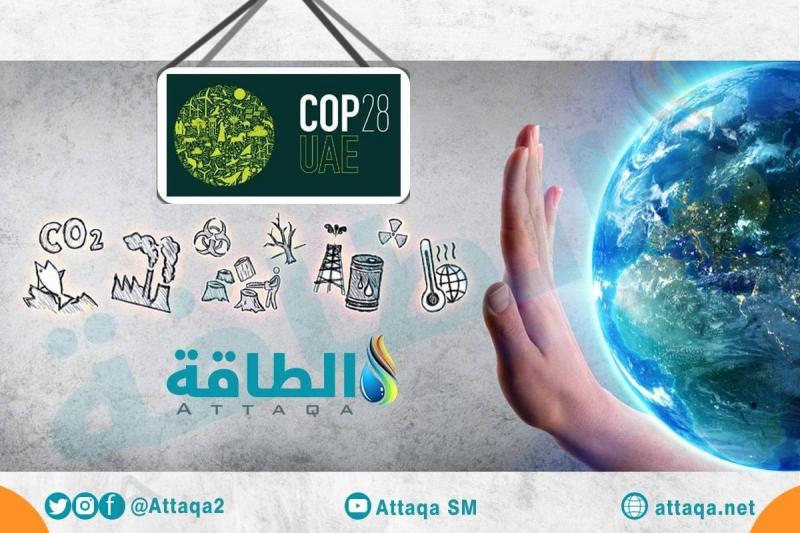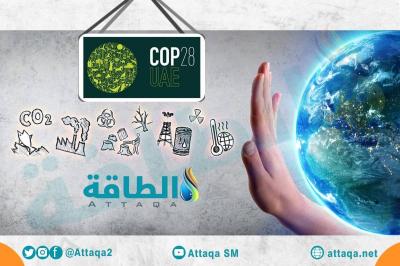Representatives from nearly 200 countries at the United Nations Climate Conference (COP28) agreed today, Wednesday, to begin reducing global fossil fuel consumption to avoid the worst impacts of climate change, marking the first agreement of its kind that heralds the end of the oil era. The agreement, reached in Dubai after two weeks of arduous negotiations, aims to send a strong message to investors and policymakers that the world is united in its desire to cease the use of fossil fuels, which scientists say is the last best hope to avert climate disaster.
A European Commissioner announced that the climate conference may signal "the beginning of the end for fossil fuels." He added, "For the first time in 30 years, we can now approach the beginning of the end of fossil fuels. We are taking an important, very important step" to limit warming to 1.5 degrees Celsius.
Sultan al-Jaber, the President of COP28, stated, "We worked overnight to find consensus. The parties intensified their efforts and showed flexibility," noting that "together we managed to steer the world in the right direction and provided a plan to keep the 1.5 degrees Celsius target within reach."
A representative from Saudi Arabia welcomed the agreement but reiterated the oil-producing country's stance that combating climate change involves reducing emissions using all technologies. The representative praised the results of the discussions, stating they "showed different pathways that will allow us to achieve the 1.5 degrees Celsius goal in line with each country's characteristics and in the context of sustainable development." He added, "We must seize every opportunity to reduce emissions regardless of the source. We must use all technologies to achieve this goal."
U.S. Special Climate Envoy John Kerry stated after the agreement, "This is a moment where multilateral action converges, and people are setting aside individual interests to pursue the common good." However, the chief negotiator for the Alliance of Small Island States, Anne Rasmussen, criticized the agreement, describing it as falling short of ambitions. She stated, "We have made gradual progress compared to business as usual, while what we really need is a significant change in our actions." However, she did not formally object to the agreement and received warm applause for her remarks.
Norwegian Foreign Minister Espen Barth Eide discussed the agreement, considering it "the first time the world has united around such a clear text regarding the necessity of a transition away from fossil fuels." More than 100 countries had pressed intensely for strong wording in the COP28 agreement concerning the "phasing out" of oil, gas, and coal usage but faced strong resistance as well from members of the Organization of the Petroleum Exporting Countries (OPEC) led by Saudi Arabia, who argue that the world can reduce emissions without relinquishing certain fuel sources.
A body affiliated with the United Nations focused on climate released the proposed text for the agreement today, which included a reference to the complete transition away from fossil fuels. The document acknowledged "the need for deep, rapid, and sustainable reductions in greenhouse gas emissions in line with the 1.5 degrees Celsius target" and called on countries to take actions including:
(a) Tripling global renewable energy capacity and doubling the global annual rate of energy efficiency improvements by 2030.
(b) Accelerating the phase-out of coal production and usage without relying on technologies that reduce greenhouse gas emissions and limiting the approval of new energy generation from such coal.
(c) Speeding up global efforts to establish emissions-free energy systems and using zero- and low-carbon fuel types by mid-century or nearly by then.
(d) Transitioning away from the use of fossil fuels in energy systems starting in this decade in a fair, organized, and equitable manner to achieve net-zero emissions by 2050 in accordance with science.
(e) Accelerating the adoption of technologies to stop and reduce emissions, including renewable energy technologies, nuclear energy, reduction, and removal technologies such as carbon capture, utilization, and storage, particularly in hard-to-abate sectors, and low-carbon hydrogen production, to bolster efforts to replace fossil fuels produced and consumed without utilizing emission-reducing technologies in energy systems.
(f) Significantly reducing other emissions besides carbon dioxide, with a particular focus on methane emissions globally by 2030.
(g) Accelerating reductions in transport emissions through a range of pathways, including infrastructure development and rapid deployment of zero-emission vehicles.
(h) Gradually eliminating ineffective fossil fuel subsidies that do not address energy poverty or equity in the transition as soon as possible.




